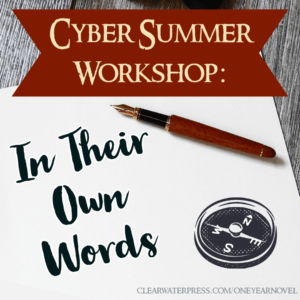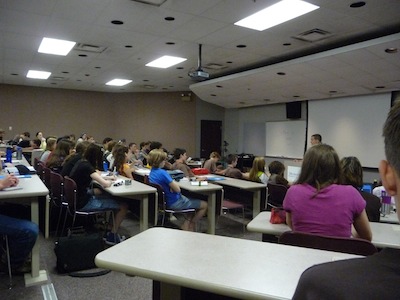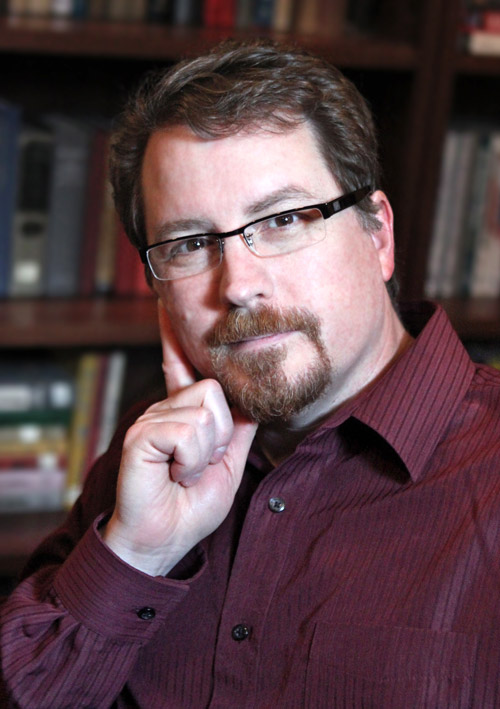Cyber Summer Workshop: In Their Own Words
 Since their genesis in 2010, the annual One Year Adventure Novel Summer Workshops have been a highlight of many an “OYAN” student’s year. When COVID hit and workshop made the transition to an online-only event for the first time, everyone here on staff was determined to capture the liveliness, education, and fun of the in-person versions. It was a great time, and we are determined to improve upon the experience and bring even more exciting opportunities and ways for students to connect at this year’s Cyber Summer Workshop.
Since their genesis in 2010, the annual One Year Adventure Novel Summer Workshops have been a highlight of many an “OYAN” student’s year. When COVID hit and workshop made the transition to an online-only event for the first time, everyone here on staff was determined to capture the liveliness, education, and fun of the in-person versions. It was a great time, and we are determined to improve upon the experience and bring even more exciting opportunities and ways for students to connect at this year’s Cyber Summer Workshop.
Many people ask what a Summer Workshop is like, and the volume of queries increases when it comes to the cyber version. We contacted several students who attended last year’s cyber event and asked them to speak as if they were talking to a prospective attendee. The following will give you a taste of what it’s like to attend an online SW, as well as tips and tricks for making the most of your experience.
Esther P.
My favorite part of Summer Workshop was being in a critique group. At first, reading my story out loud to strangers terrified me, but by the end of the first day, I already felt comfortable with my group. I received so much valuable input on my story and my writing in general.
My favorite part about it being online was that I could go! In-person Summer Workshop wasn’t an option for me, but when it switched to online, it meant that I was able to attend. The things I learned and the people I met during it have made a huge impact on my writing journey.
Wow, I learned so much from Summer Workshop. Every session gave me ‘aha’ moments. However, I think the biggest thing I learned would be the value of a writing community. Before Summer Workshop, I was on the student forum but only knew a couple of people and didn’t get very involved. I didn’t feel like I fit in and was too shy to introduce myself. Summer Workshop gave me no choice but to get to know people—and when I did, I found so many cool, encouraging, kind, talented writers that I’m blessed to call friends now. Every day, OYAN feels less and less like a curriculum and more and more like a home. Summer Workshop was my jumpstart into that community.
Critique groups were held in a Zoom room specific to each group, and everyone had their excerpts uploaded to Google docs. We’d each take turns reading our excerpts out loud while the rest of the group added their comments right onto the Google document. Afterward, we’d take a few minutes to discuss our thoughts on the story, and then it’d be time to move on to the next person. There were a lot of very helpful insights, plenty of laughter, many intriguing stories, and always a warm environment of encouragement and support. The members of my critique group are now some of my dearest friends, and we enjoyed it so much that we’ve continued meeting regularly since!
My mentor appointment was with Allen Arnold, and I showed up with several big questions I wanted to ask him, mostly about publishing and also on integrating powerful truths into stories without being preachy. He gave lots of great advice, and his encouragement actually nudged me onto the publishing path I’m on now! I filled an entire page with notes from the appointment, and continue to look back on them, especially when I want to be inspired to write life-changing stories.
It’s worth it. No, it won’t go perfectly (throughout the week of Summer Workshop, my laptop decided to randomly crash at least every half hour, my mouse broke, and my internet connection severely lagged many times). And no, it’s not the same as meeting people in person. But it really is worth it—at least for me. The sheer amount of incredibly helpful writing advice from the sessions, the laughter and personalized story insights from critique groups, the atmosphere of encouragement and fellowship… My writing is much improved from everything I learned at Summer Workshop, and I treasure the friendships I made at the same time. I’ve never once regretted my decision to attend, and I look forward to attending the next one!
Alyssa S.
[The 2020 Cyber SW] was one of the best weeks of the year for me. I got to talk with new people, I learned so much, and there was just a lot of fun and laughing and I didn’t ever want it to end.I’d have to say that one of the biggest things I learned from the workshop wasn’t in relation to writing – don’t get me wrong, I learned amazing writing information that has definitely helped my writing, but I think the biggest thing was that I learned how a writing conference works. SW was my first ever writing conference and I had no idea how it was going to go, but by the end, I knew everything that was going on and now I feel more confident with knowing where I’m supposed to be (Schedules help, too). It’s also made me more excited to go to other writing conferences – now I’m going to them on an annual basis.
My mentor appointment was great! I’d chosen Stephanie Morrill as the mentor I wanted and she was who I got. When it came time for my appointment, I clicked on the Zoom meeting link and she then let me in. I was not prepared at all – I didn’t know what I would ask, I didn’t know what I should say, I didn’t know anything. But she was really fun to hang out with and chat with – I didn’t feel nervous at all, and I finally came up with some questions on the fly that I asked her. Her advice was really helpful and I made sure to write it all down.
I would say that it’s the experience of a lifetime and that you should definitely go if you’re considering it. You get to learn so much about writing and you get to meet new people, and even if it’s not in person it’ll still be a ton of fun. You’ll get so many amazing memories from it and I’m sure that you’ll enjoy it.
Amanda
I think I just learned a lot about what it really means to be in a critique group. I’d critiqued on the forum previously, but it wasn’t in real-time like my Summer Workshop critique group, and the experience really was amazing for me and helped me figure out the best types of comments to give to others and how to determine what to apply to my own writing and what to set aside and acknowledge as good advice but determine it’s not right for my story.
Critique groups were super fun because I could interact and make friends with a bunch of specific people every day (and get to know their amazing stories), and it was also super helpful for my own book.
Julie P.
[My favorite part about the Cyber SW was] probably seeing all of the good things about going virtual for me. For example, in my critique group being able to comment altogether on different stories allowed us to agree with one another, elaborate on critiques in a helpful-to-use format, AND form inside jokes. 😉 I also got to connect (and re-connect) with other students that wouldn’t be able to attend in real life.My mentor appointment was awesome! Mr. Arnold gave me a lot of helpful tips on writing and publishing. To me it felt similar to the in-person mentor appointments.
If you are able to go to the Summer Workshop this year, I would one hundred percent recommend it. Especially if this is your first time attending a writers’ workshop of any sort! Everyone is so encouraging and it’s a good opportunity to connect with other OYANers. Remember: it’s great to study the schedule, prepare mentor questions, etc., but also be okay with taking things as they come, even if they’re not what you originally planned. Often bits of truth I’ve gotten from teaching sessions or spontaneous conversations with other students were totally unexpected, but helped me to grow more than my ideas and plans ever could. I hope to see you there!
Rachel E.
I loved that I could still connect with OYANers through the online format. The chat was lively during sessions, OYANers video called each other during free time, and critique groups were as fun as ever. Forum activities, like writing poetry or taking pictures, enabled me to connect with my friends even though we weren’t in-person.
A major takeaway [of the workshop] was the importance of theme. I learned how our stories can either bring hope or cynicism into the world, and how character arcs and archetypes can be powerful vehicles for truth.
Each person brought a four page excerpt from their novel to critique group. My critique group had an established reading order so newbies wouldn’t have to read first or last. The writer would read their work to the group, and then we would jump in with different comments. And it isn’t all serious, scholarly critique—my group had several inside jokes and we got to know each other well. It was a very positive and constructive experience!
Because of the online format, I tried to limit my screen time by going for walks, playing music, taking naps, etc. After the evening session, I participated in forum activities and video calls.
Go! Make friends! Learn! I know Workshop can be intimidating for someone who has never gone before or who has missed a couple years. OYANers are some of the kindest, most hospitable people I’ve ever met. The students, staff, and speakers at Workshop are there to encourage you and help you grow. And if you ever feel lonely or overwhelmed or panicked because your next excerpt has a huge plot hole—reach out. I guarantee a dozen OYANers will reach back.
You get out what you put in. If you want Workshop to be a magical experience, make it magical. Look for ways to pour into others, and you will be blessed!
Click here to learn more about the 2021 Cyber Summer Workshop. Early registration pricing ends May 7th, and the registration deadline is June 1st. We hope you’ll consider coming along on the adventure with us this summer!


